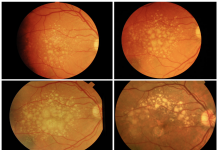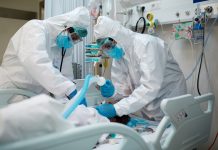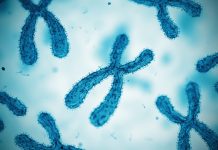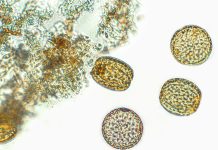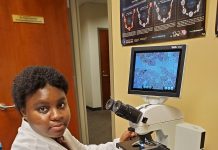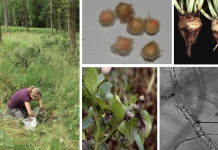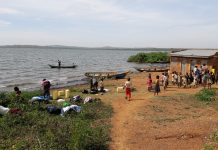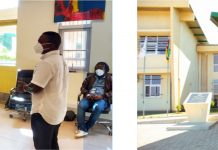Open Access Government produces compelling and informative news, publications, eBooks, and academic research articles for the public and private sector looking at health, diseases & conditions, workplace, research & innovation, digital transformation, government policy, environment, agriculture, energy, transport and more.
Home 2023
Archives
Biocontrol fungi for plant disease research
Susanne Zeilinger, University Professor for Microbiology, underscores sustainable solutions for plant disease research, focusing on the power of biocontrol fungi.
Towards One Health Intelligence surveillance systems
The increase in global diseases and other health threats in recent decades has necessitated the importance of strengthening our surveillance systems towards early detection and monitoring of drivers.
Understanding age-related macular degeneration
Tunde Peto, Professor of Clinical Ophthalmology at Queen’s University Belfast, describes the symptoms, causes and treatments for age-related macular degeneration and how the prevalence of the disease could be reduced.
Classification of rare diseases: The case of the ultra-and hyper-rare
Dr C. I. Edvard Smith, Dr Daniel W. Hagey and Dr Rula Zain, from the Karolinska Institutet in Sweden, note that there is an almost infinite number of unique diseases, contributing to the challenges with the classification of rare diseases.
Applying data science advances in disease surveillance and control
Dr. David S. Ebert from the University of Oklahoma’s Data Institute for Societal Challenges and Dr. Aaron Wendelboe from the University of Oklahoma Health Sciences Center outline how a cohesive, multidisciplinary, and multi-tiered approach can support a more predictive model in disease surveillance and control.
Exploring the possibilities of bacteriophages for tuberculosis
Bacteriophages have long offered prospects for treating bacterial infections. Is it time to use phages to control tuberculosis? Professor Graham F. Hatfull explores this.
The potential of microparticles for active surveillance of infectious diseases
Emmanuel Kifaro from the SACIDS Foundation for One Health, and College of Veterinary Medicine and Biomedical Sciences, Sokoine University of Agriculture, Tanzania, details the potential application of microparticles for active surveillance of viral infections from non-invasive animal matrices.
RNA molecule signature diagnosis could revolutionize personalized medicine
Professor Michael Levin from Imperial College London argues that in the DIAMONDS project, there has been a breakthrough response in personalized medicine via RNA molecular signature diagnosis.
HIV therapeutic targets: Basic virology to the discovery of antiretroviral drugs
Do we need new antiretroviral drugs to treat HIV infection, and if so, what are the promising targets? Dr Eric O. Freed, Director of the HIV Dynamics and Replication Program at the National Cancer Institute in Frederick, Maryland, discusses these questions.
Can we produce new medicines from microalgae?
Inflammatory bowel disease (IBD) is a chronic inflammation in the digestive tract. Currently no effective treatment exists, something that the researchers of the EU-funded Algae4IBD project want to change with the help of microalgae.
Visualizing the anti-inflammatory cannabinoid Type-2 receptor
Medicinal chemists describe how small molecule probes allow for the detection of CB2R, and thereby enable the discovery of novel anti-inflammatory treatments.
Allergic asthma and the legacy of structural racism on the African American urban communities
Allergic asthma is a chronic inflammatory disease characterized by bronchial hyperactivity, disproportionately affecting African Americans.
Trans-sectorial approaches sustainable disease control across agribusiness districts
Professor Laura Grenville-Briggs shares her stance on working together to counter the threat of oomycete diseases, focussing on trans-sectoral approaches to support sustainable plant and fish production systems in Europe.
Challenges bringing CB₂R medicine to bedside
Drug hunters explain how to overcome pitfalls on the way to CB2R medicine and therapeutics.
Prebiotics from algae as a treatment for inflammatory bowel disease
The Algae4IBD project is studying the potential of probiotics and algae-derived prebiotics as a treatment for inflammatory bowel disease.
Wicked-Schisto: The wicked public health problem of Schistosomiasis and the interdisciplinary research helping to...
Poppy Lamberton, Professor of Global Health at the University of Glasgow, is leading an interdisciplinary team aiming to identify cost-effective, sustainable interventions for schistosomiasis, a devastating neglected tropical disease.
Whole-person integrative oncology – A path to improved outcomes and patient empowerment
Integrative oncology gives patients the tools to not only make the environment as inhospitable to cancer as possible – it also empowers patients to take some control back after receiving a cancer diagnosis.
Enhancing community-based disease surveillance using Afyadata in Mozambique
SACIDS, in collaboration with the Ministry of Health in Mozambique is capitalizing on its AfyaData, a digital disease surveillance app, to enhance early detection, timely reporting and prompt feedback/response to health-related signals/events, including COVID-19 and other priority diseases in the country.
Remyelinating versus neuroprotective therapies for multiple sclerosis
Reducing clinical relapses and improving quality of life is at the heart of MS treatment; here Tara M. DeSilva explores the benefits of remyelinating versus neuroprotective therapies for tackling MS.
Long Covid lessons: beyond winter and the COVID pandemic
Paying attention to Long Covid lessons is key: Long Covid has already provided lessons for other long-term conditions and planning for future pandemics far beyond COVID-19.



